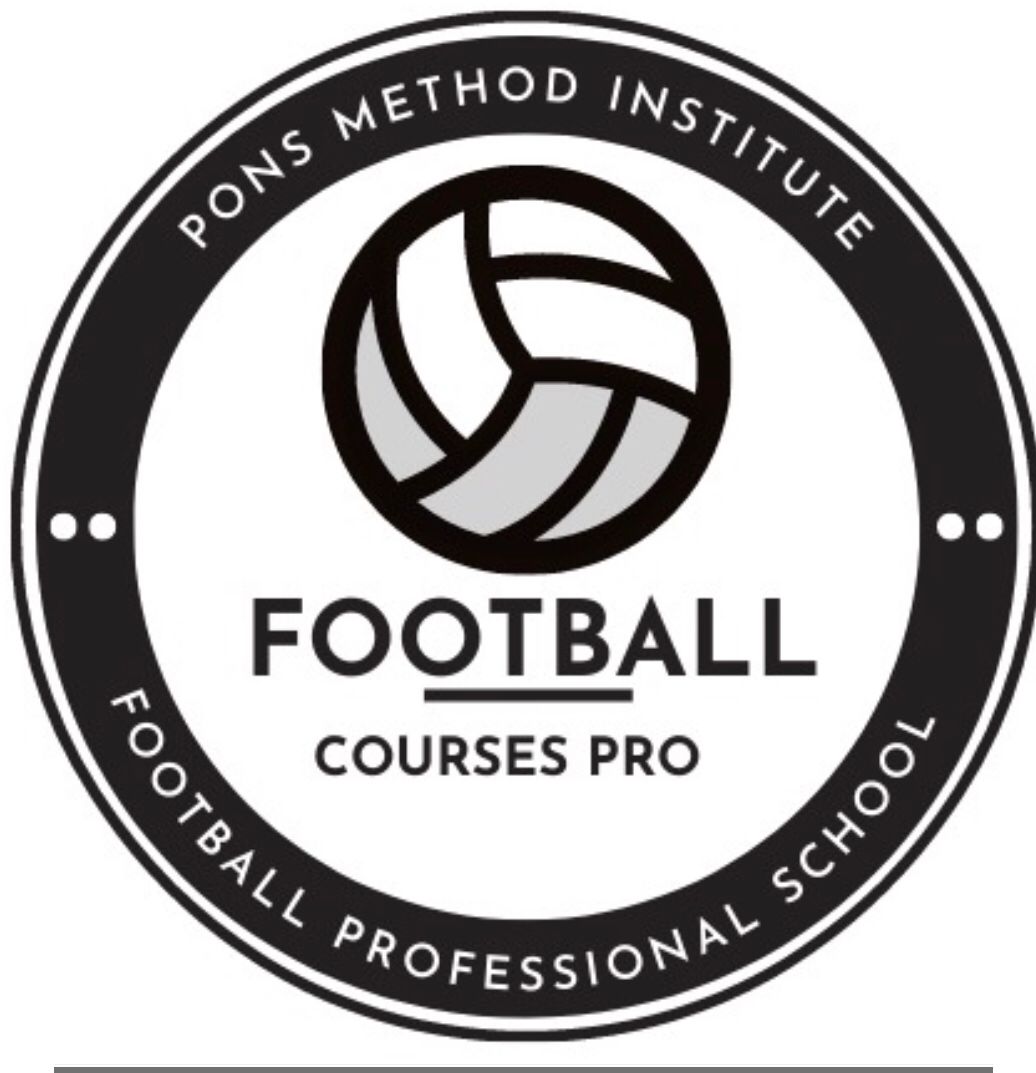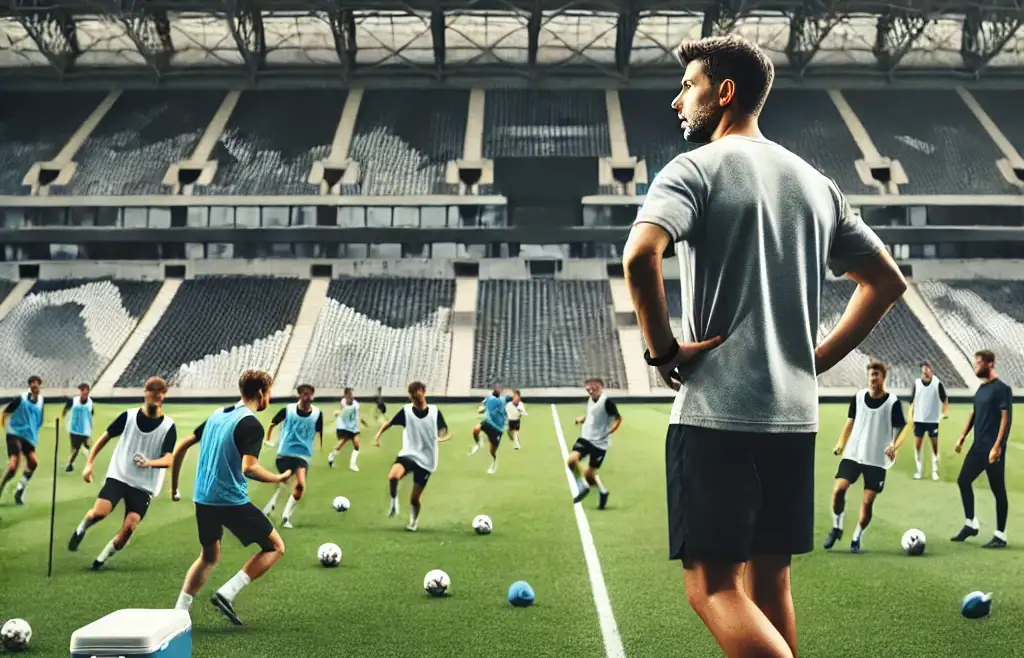In modern football, the success of a coach is not merely measured by match results but by the lasting impact they have on player development and team cohesion. A coach who focuses solely on winning games may achieve temporary success but risks long-term inefficiencies. The key to sustainable high performance lies in balancing collective and individual training, a principle deeply embedded in the Pons Method. Through the concept of semi-collective & individual training and the strategic fragmentation of exercises, coaches can maximize player performance and ensure long-term growth, both for the individual athlete and the team as a whole.
Moving Beyond Results: The Holistic Approach to Training
As I, David Pons, have observed throughout my career, many coaches still focus too heavily on results. While outcomes are certainly important, they are a byproduct of a process that prioritizes player development. A coach’s credibility is reinforced when they plan both collective and individual training sessions, carefully integrating them to address the unique needs of each player while maintaining team objectives.
The Pons Method advocates for a fragmented training approach, where training is broken down into smaller, focused exercises that address specific technical, tactical, and cognitive components of the game. This enables players to develop at their own pace, focusing on their unique strengths and weaknesses, without losing sight of the larger collective goals. When a coach takes the time to design training sessions that incorporate individual needs within a semi-collective structure, they create an environment where improvement becomes the priority, and results follow naturally.
Fragmentation of Training: A Key to Maximizing Performance
The fragmentation of training is a cornerstone of the Pons Method. This approach involves breaking down complex game situations into smaller, manageable tasks that can be trained in isolation before being reintegrated into a more collective setting. For instance, when working on a tactical element like playing out from the back, the training can be fragmented into:
- Individual technical & tactical drills focusing on the game model. .
- Semi-collective exercises involving players to work on positioning and decision-making.
- Full-team integration, where the individual skills , the game patterns and the sinergies are applied in real-time game scenarios.
By training in this fragmented manner, players gain confidence in their individual abilities while understanding how their role contributes to the collective team effort. This method ensures that players are constantly challenged in specific areas while maintaining a broader understanding of team dynamics. It’s a process-driven approach that emphasizes continuous improvement rather than an obsession with immediate results.
Semi-Collective Individual Training: A Path to Synergistic Development
A critical aspect of the Pons Method is the concept of semi-collective & individual training. This refers to training sessions that focus on individual player development within a collective setting. For example, a forward may focus on improving finishing techniques, while defenders work on positioning and marking, all within the context of a game scenario that involves the entire team. This creates a learning environment where individual progress is made, but not in isolation from the team’s collective goals.
The key benefit of semi-collective training is that it helps players understand how their individual actions impact team performance. This reinforces their tactical intelligence, communication skills, and overall game awareness. It also fosters a sense of accountability, as each player becomes aware of their responsibility to contribute effectively to the team’s success. Over time, this approach strengthens team cohesion, allowing players to perform at their peak both individually and collectively.
Anticipating and Addressing Problems: The Proactive Coach
One of the greatest strengths of a coach who embraces the balance between individual and collective training is their ability to anticipate problems before they manifest on the pitch. By continuously monitoring individual progress and identifying potential weaknesses through fragmented exercises, a coach can make early interventions to correct issues before they become detrimental to the team.
This proactive approach contrasts with the reactive style of coaching, where problems are only addressed after they result in poor performance. By using the Pons Method to fragment training, coaches can fine-tune individual and collective performance on an ongoing basis, ensuring that the team is constantly evolving and improving.
Credibility and Trust: Building Stronger Teams Through Strategic Training
A coach who adopts the fragmented and semi-collective approach gains immense credibility in the eyes of their players. When players see that their development is prioritized—both as individuals and as members of a team—they are more likely to trust the coach’s vision and work harder to achieve the desired outcomes. This creates a positive feedback loop, where individual progress leads to improved team dynamics, which in turn leads to better results on the field.
Moreover, the players develop a mindset focused on process and improvement, rather than being fixated on results. When players understand that every training session is part of a larger process aimed at continuous growth, they become more resilient in the face of challenges and setbacks. This mindset is essential for long-term success, both for the player and the team as a whole.
Conclusion: A Process-Driven Path to Performance Excellence
In today’s high-stakes football environment, a coach must do more than merely win games. They must build a culture of process-driven development, where individual and collective progress is equally valued. By fragmenting training sessions and adopting a semi-collective individual approach, coaches can ensure that their players are constantly improving, while also fostering a cohesive team environment.
The Pons Method offers a proven framework for achieving this balance. By focusing on the holistic development of each player within the context of the team, coaches can build teams that are not only successful but sustainable over the long term. When improvement and process take precedence over short-term results, the outcome is inevitable: sustained performance excellence and a team built on trust, credibility, and continuous growth.

